The Royal Navy is pioneering a shift in navigational training by incorporating Virtual Reality (VR) technology into its programmes.
This is centred around nine high-tech bridge simulators, which have been installed at locations across England and Scotland, including the Royal Navy’s warfare school at HMS Collingwood in Fareham.
A £27 million investment by a consortium led by Capita in collaboration with Metaverse VR and active Navy personnel, has been made to revolutionise how sailors navigate and manage ship bridges during operations.
At HMS Collingwood, five simulator suites have been deployed, featuring two large ‘full mission’ simulators with wrap-around digital displays and VR headsets, a smaller version equipped with an LCD display, and two compact trainers that mimic video gaming setups but maintain the same level of accuracy and features.
These simulators are named after renowned Royal Navy navigators, including Ross, Parry, Bligh, Fitzroy, and Flinders, celebrating their historical contributions to naval exploration. Virtual reality plays a crucial role, particularly in the two theatre-size simulators where sailors, using the headsets on the mock-up bridge wing, are immersed in a 3D environment that enhances their situational awareness during complex manoeuvres such as docking and resupplying in narrow waters.
Sub-Lieutenant Stephen Smallman, aged 28, from Plymouth, shared his experience transitioning from the older simulators to the new system. “The old simulator was good, but you knew you were in a room with some screens. Here, you feel like you are stepping onto the bridge of a warship. It is very easy to become immersed in the situation – it makes everything feel much more real,” he was quoted in a press release as saying.
The future of these training modules includes potential upgrades such as additional ports and harbours, new ship models like the Type 26/31 frigates, and enhanced tidal streams, providing an ever-expanding realistic training environment for the Royal Navy.



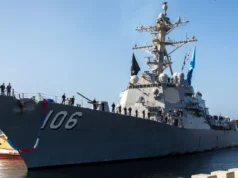
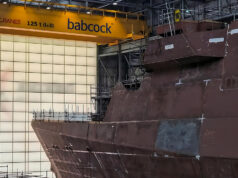
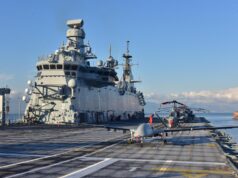
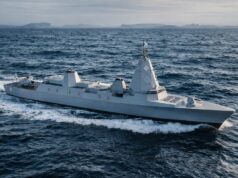
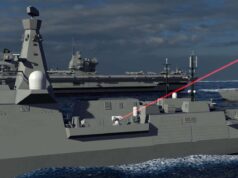
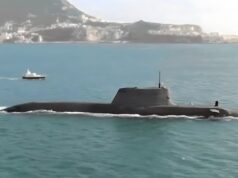
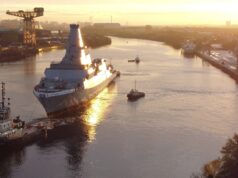

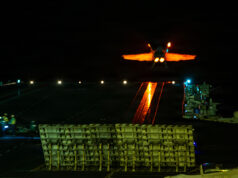
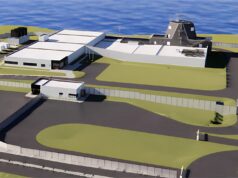

On Virtual Ships, with Virtual Aircraft and Virtual Crew….. In a Virtual War environment no doubt….. Cool it sure beats having to spend money on real stuff……😏….. maybe we should just have a couple of Virtual Aircraft Carriers,,,, and a few dozen Virtual F35’s……
What we should build real kit so a trainee can sink stuff worth billions when you can do the training fora few million 😂 Looks to me as if they plan to buy the ships as well. Effectively they are just simulators at the end of the day and the RAF don’t mind them.
Crewed by virtual intermediate bosuns?
Haven’t I seen something about some low speed crashes lately. 😀
There’s definitely a place for good simulators, especially with the lack of large ships to practice with. The ability to sail to more than one port in a day is an obvious benefit, as well as dealing with wildly different weather and tidal conditions.
It also gives the opportunity to widen the pool of navigators.
What it does not do is give you the feel of actually piloting thousands of tons of steel and dealing with the momentum etc.
If you are going to have simulators, have the best.
AA
Way cheaper than using a warship and crew you have not got.
Really it is too easy to throw rocks at this one.
Lots of benefits, but as someone has said, not the same as the real thing.
That’s not the way training works. A course is constructed in such a way that theory is practiced in a benign environment first, often repetitively, until the student can move on to a confirmation phase on the real equipment or in this case, a ship. VR, simulators and other training aids are a tool for training, not a replacement for the real thing.
cheers
Apologies if this gave the impression I was not impressed.
I do understand training, I do understand where simulators fit in, they have been used for years, but ultimately it has to be put into practice and tested in the real world.
It is clearly much cheaper to do much of the reparative procedural practice stuff in the simulator, VR makes it more realistic and therefore better, but it is still not real world.
Cheap, is it ?
Nothing military is what a civilian would call cheap, but £27m for five simulators and the training programmes to put in them is what they would class as cheap. I’ve seen wrap-around simulators for flying costing £10m a pop without any custom made programming.
Royal Marines to get six new ships which can launch drones and fire laser weapons (msn.com) Interesting story,
I like the idea of naming the simulators after navigators.